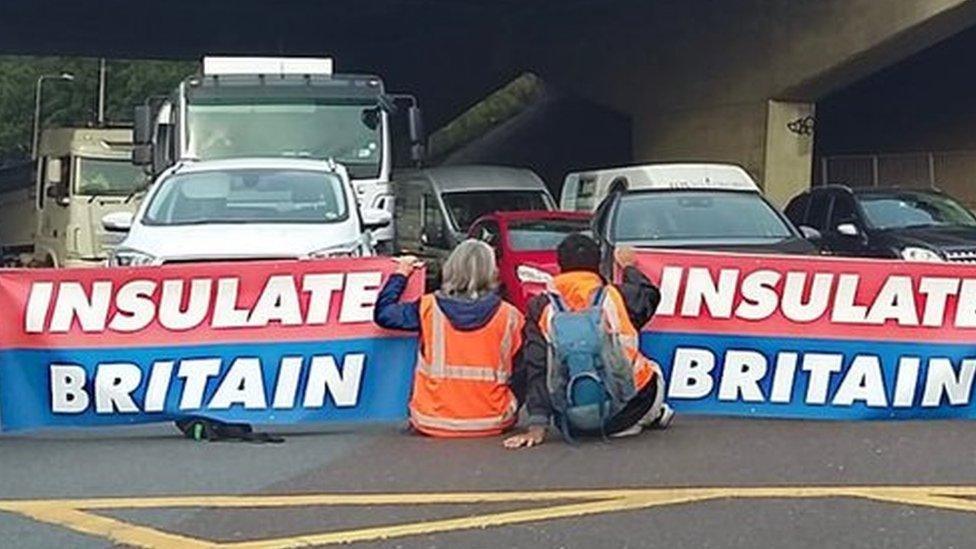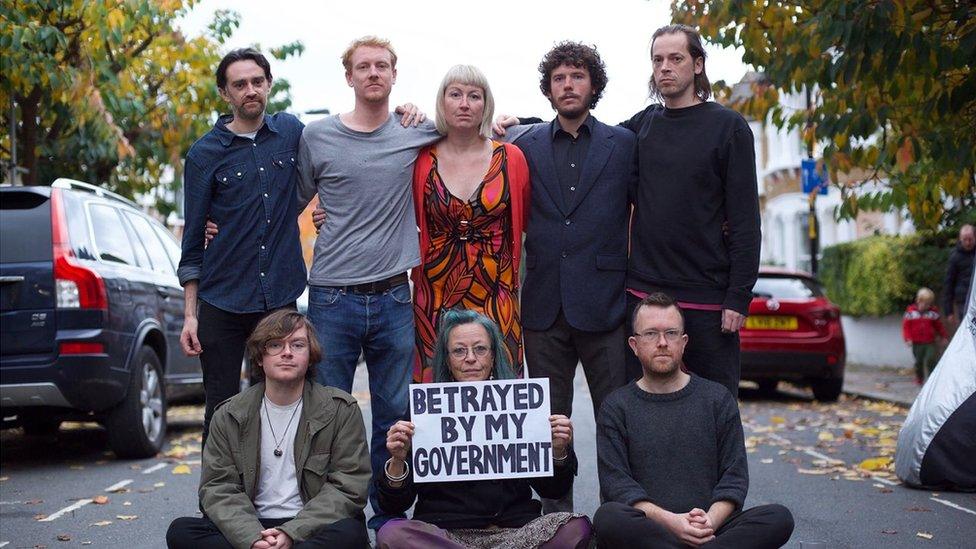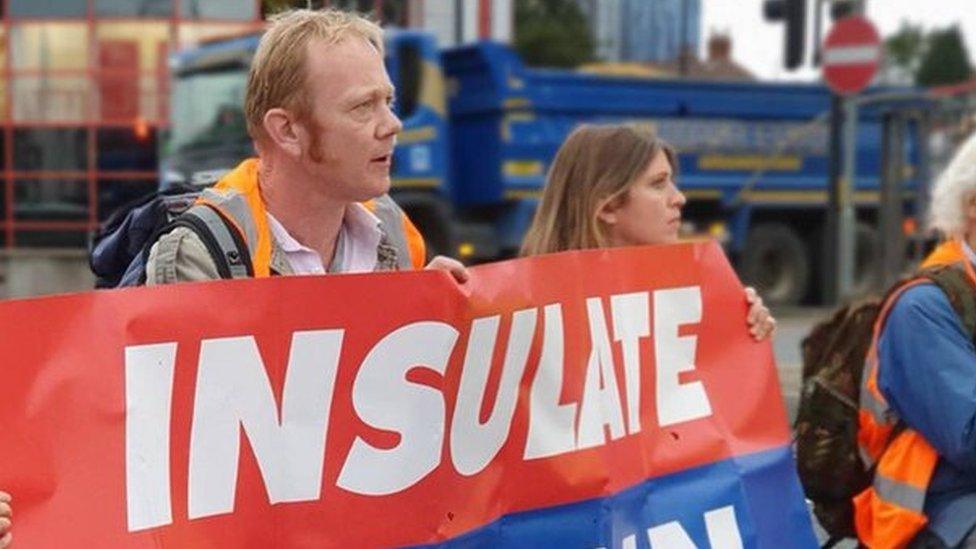Insulate Britain protesters admit defying road blockade ban
- Published

The protests have sparked anger among motorists and others affected by the blockades
Nine Insulate Britain protesters have admitted being in breach of an injunction designed to prevent their road blockades.
Activists began a wave of protests two months ago, blocking the M25, roads in London and elsewhere in the UK.
One of the nine, Louis McKechnie, said ahead of Tuesday's High Court hearing: "If the government chooses to imprison us... this will show their cowardice."
The group has vowed to continue with its campaign of direct action.
Lawyers representing National Highways said the nine all admitted flouting a ban on protests on the M25, which was granted by a High Court judge on 21 September, by taking part in a blockade of the motorway on 8 October.
They are: Ben Buse, 36, Ana Heyatawin, 58, Louis McKechnie, 21, Roman Paluch, 28, Oliver Roc, 41, Emma Smart, 44, Tim Speers, 36, James Thomas, 47, and Ben Taylor, 27.

The activists (Ben Buse is not pictured) say they are prepared to go to prison
Myriam Stacey QC, representing the National Highways Agency, said that on 8 October protesters blocked two lanes of the M25, adding that the last two removed by police had glued themselves to the ground.
In his pre-hearing statement, Mr McKechnie said the government "would rather lock up pensioners than insulate their homes".
He said he faced the prospect of being sentenced to prison on his 21st birthday, adding: "They will lock us up and leave thousands to die of cold this winter, and millions to face climate chaos in the coming decades."
The High Court has so far issued five injunctions to prevent protesters from blocking roads.
This includes four injunctions granted to National Highways, banning demonstrations on the M25, around the Port of Dover and on major roads around London, and one to Transport for London.
Those who breach the injunctions could be found in contempt of court and face a maximum penalty of two years in prison or an unlimited fine.
The High Court hearing continues.
Related topics
- Published27 October 2021

- Published13 September 2021
